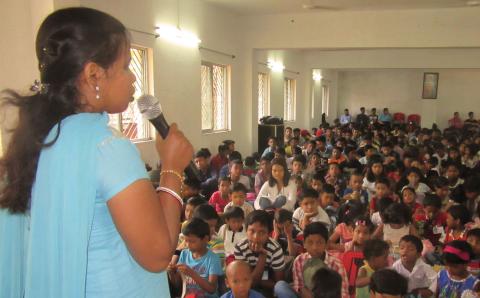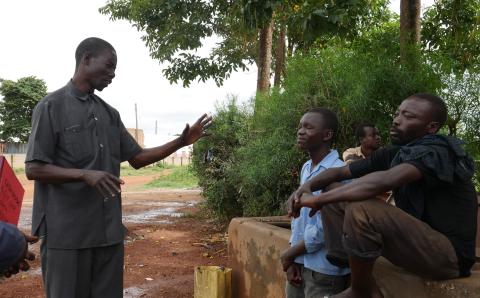When the Christian Reformed Church purchased The Banner back in 1914, it chose to protect the magazine’s editorial independence, ensuring it was more “the press” than public relations. Even when the denomination decided in 2005 to send the magazine to every household in the CRC, synod chose to keep it a journalistic ministry rather than turn it into a denominational newsletter. Why? Because journalism matters.
At its best, journalism serves a community by being a mirror and a forum. As a mirror, The Banner brings news of significant and interesting happenings from the congregational, classical, and denominational levels. Through this news, both good and bad, we get to see our collective selves. We celebrate our shared achievements and identify our shortcomings for improvement. By being as truthful as possible, this mirroring also fosters accountability among us all, from the individual church member to the highest denominational leader.
By reflecting our collective stories and opinions, this mirror also fosters connections and unity. A reader from New Jersey can rejoice at a California church’s good news. We recognize each other in the mirror despite our differences. We increasingly recognize shared values, shared ideas, and shared stories.
As a forum, The Banner creates a space for us to collectively work through our differences—ideally in a civil and loving manner. Good opinion journalism shares credible ideas and insights to help readers further think through social issues and problems. The Banner offers thought-provoking articles from a variety of perspectives in order to foster conversations and dialogues among readers and congregations on issues that affect our collective spiritual and denominational lives. This forum allows us to learn from each other.
The variety of perspectives is important because none of us has a monopoly on God’s truth. As limited creatures, each of us suffers from intellectual and theological blind spots. Missionary theologian Lesslie Newbigin once wrote: “All reading of the Bible and all our Christian discipleship are necessarily shaped by the cultures which have formed us. . . . The only way in which the gospel can challenge our culturally conditioned interpretation of it is through the witness of those who read the Bible with minds shaped by other cultures. We have to listen to others. The mutual correction is sometimes unwelcome, but it is necessary and it is fruitful” (The Gospel in a Pluralist Society, 196-197).
This need to listen to Christians from different cultures applies also to listening to Christians from various perspectives. We can mutually correct each other’s blind spots, helping each other to grow spiritually even if it might be emotionally unwelcome.
To fulfill these journalistic goals, Synod 1998 ensured The Banner’s editorial freedom, including the freedom to publish views that “may be unacceptable to others in the church” (Acts of Synod 1998). Of course, such freedom is always moderated by our commitment to Scripture and the confessions, and by our accountability.
I would be the first to admit that we at The Banner are not without mistakes; we have not always fulfilled our role perfectly. Our mirror might need some extra polishing; our forum could perhaps use more variety. Like everyone else, we have our own blind spots and our own biases. We try to mitigate them.
But we will always strive, to the best of our abilities, to be faithful to our calling.
Synod believes that a journalistic Banner matters for the CRCNA’s health. I too believe in that vision. I would love to hear from you, our readers, how that might matter for you as well.
About the Author
Shiao Chong is editor-in-chief of The Banner. He attends Fellowship Christian Reformed Church in Toronto, Ont.
Shiao Chong es el redactor jefe de The Banner. El asiste a Iglesia Comunidad Cristiana Reformada en Toronto, Ont.
시아오 총은 더 배너 (The Banner)의 편집장이다. 온타리오 주 토론토의 펠로우쉽 CRC에 출석한다.
You can follow him @shiaochong (Twitter) and @3dchristianity (Facebook).








